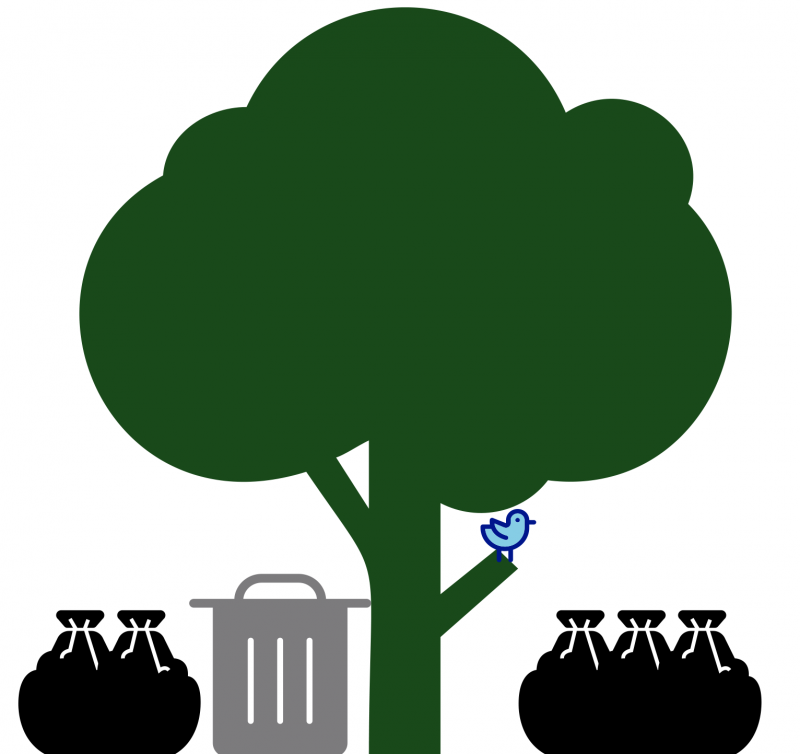Deb Tyson, director of Residential Life, is planning to launch an initiative to encourage the Trinity community to pick up litter on campus. The initiative, called “Don’t Trash Trinity,” will start this October.
Tyson explained that her inspiration for Don’t Trash Trinity was partially based on the experience that she had working at the University of Denver, where there was an expectation that everyone contributed to the success of the campus, including the appearance of the grounds.
“It’s really all about our footprint and about how we in this community choose to want to contribute to what is happening around us,” Tyson said.
Tyson noticed small pieces of trash around campus when she first visited Trinity.
“It’s not technically micro-trash. This is more about small pieces of trash that don’t really draw attention but actually get embedded in the ground, get embedded in the grass, get run over by lawn mowers, show up in bushes and trees,” Tyson said. “So I started looking around saying, ‘This stuff doesn’t just drop out of the sky.’ Believing what I was being led to believe about Trinity students — that they’re active, caring and connected — I think that Trinity students would really buy into the idea that they are contributing to their own environment.”
Tyson hopes to team up with the resident assistants on campus and run the program through the individual residence halls.
“I want to do some supportive reminders — not just about Trinity, but that no matter where you go or what career you’re in, the idea of leaving the place better than when you walked through it is something good to connect to,” Tyson said. “All I have influence over is how we as a residence hall community can see our impact on the grounds around us. I’ve not seen a lot of excess trash negatively impacting the environment here, but I still think that we want to launch that idea when we get a chance.”
Tyson pointed out that facilities services and custodians already play a very important role in keeping Trinity clean.
“It’s about how we contribute, not about how they don’t,” Tyson said.
Don’t Trash Trinity will tie into concepts of sustainability and recycling. Sharon Curry, coordinator for sustainability and support services, explained the importance of litter pickup.
“Many people see littering as a matter of aesthetics and I think most want the campus to look nice,” Curry wrote in an email. “From an environmental standpoint, litter often winds up in waterways, especially in flood events like we’ve recently experienced. Litter can impact water flow, clogging drains and causing unanticipated flooding. Litter can impact water quality. Litter picked up by stormwater can flow into nearby creeks and rivers flow downstream to the gulf becoming marine debris. The effects of plastics on marine life is well documented.”
Although Curry believes that it is everyone’s responsibility to put waste in its proper place, she also highlighted those on campus whose jobs help with litter pickup.
“Operationally, litter control falls to Facilities Services since they manage the day-to-day operations of campus facilities and grounds,” Curry wrote. “However, Campus Planning and Sustainability does play a role by assisting with programming to encourage waste minimization. Less waste means less litter.”
Katherine Jones, junior and president of Eco Allies, sees litter on campus, but doesn’t think it is necessarily a big problem at Trinity.
“Picking up litter on campus is important because it demonstrates respect and concern for both the environment and Trinity,” Jones wrote in an email. “Eco Allies teaches students about proper waste disposal procedures, such as what is recyclable vs. what must be put in the trash. We also do a plastic display in Coates Student Center every fall to raise awareness of how much waste people produce and how it impacts the environment.”







